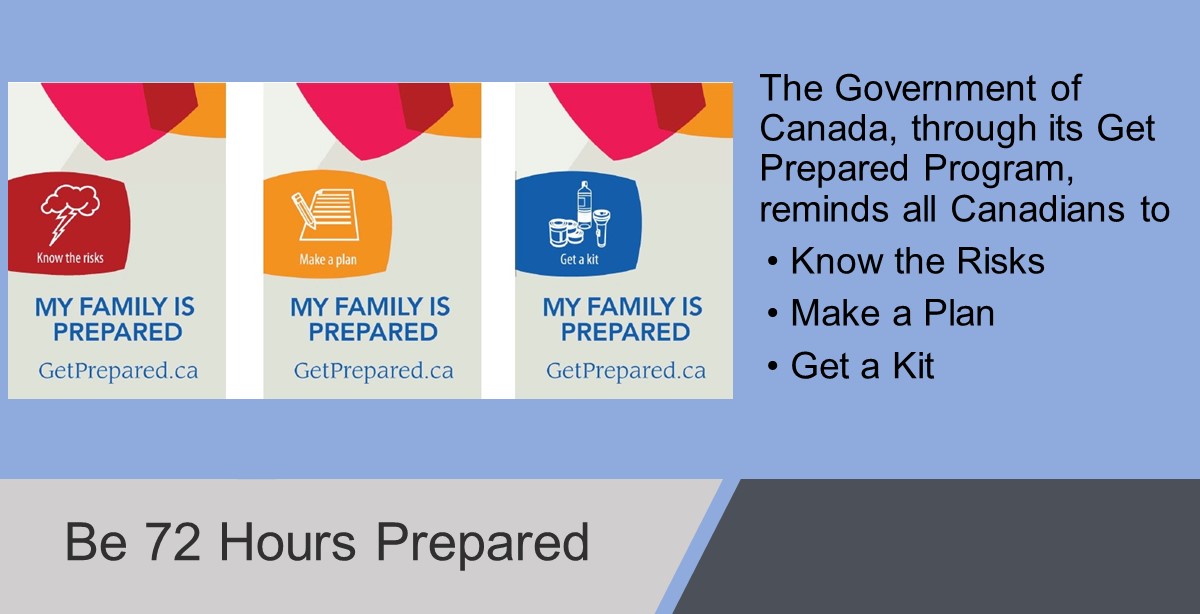Alberta communities in various parts of the province have been at the centre of significant emergencies thus far in the summer of 2019. The northern part of the province suffered through horrendous wildfires, some still burning, while other areas experienced flooding, tornadoes and damage by heavy rain and hail. These events have caused disruptions in peoples’ lives ranging from flooded basements to evacuation from their homes.
There are steps that all citizens should take to prepare as much as possible for emergency events. Public Safety and Emergency Preparedness Canada recommends that you should be prepared to take care of yourself and your family for a minimum of 72 hours. Plan for self-reliance by discussing emergency procedures with all family members and by creating a written emergency plan.
Your plan should include ensuring that all household members know where all exits to the home are, and a designated meeting place outdoors. Teach children from a young age how, and in what circumstances, to dial 911. Agree on a system to contact and meet with absent family members.
Keep emergency supplies on hand, including water (at least 2 litres per person per day), non-perishable food, manual can opener, flashlight and radio, spare batteries, and a first aid kit. Have some cash on hand, as automated bank machines and their networks will not work if a power outage is part of the emergency. Take into consideration any special needs of family members, like specific dietary needs, prescription medication and supplies for infants. Remember to prepare for your pets and livestock in a similar manner, with provision for food and water that will last 72 hours.
Warnings for severe weather events are posted by Environment Canada and other weather services, and aps are available for electronic devices, signaling the subscriber when storms are threatening. Being 72 hours prepared will not stop the storm, but it can help you cope.


